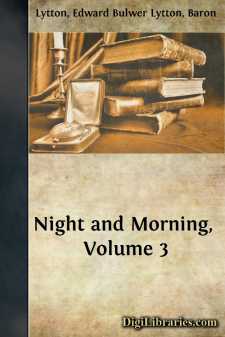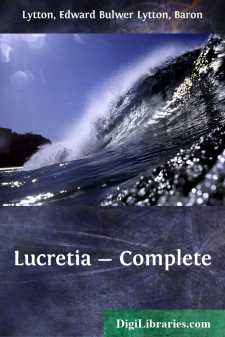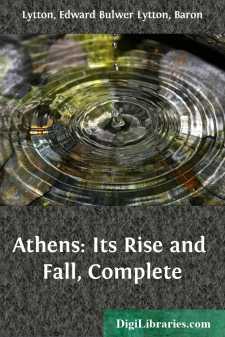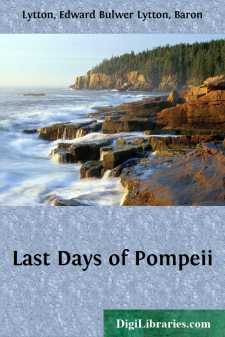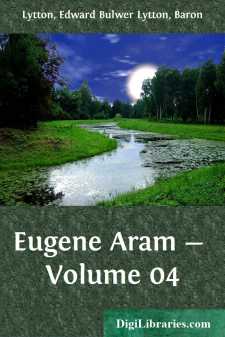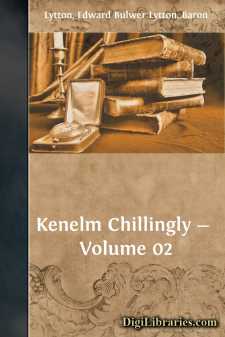Categories
- Antiques & Collectibles 13
- Architecture 36
- Art 48
- Bibles 22
- Biography & Autobiography 813
- Body, Mind & Spirit 142
- Business & Economics 28
- Children's Books 17
- Children's Fiction 14
- Computers 4
- Cooking 94
- Crafts & Hobbies 4
- Drama 346
- Education 46
- Family & Relationships 57
- Fiction 11829
- Games 19
- Gardening 17
- Health & Fitness 34
- History 1377
- House & Home 1
- Humor 147
- Juvenile Fiction 1873
- Juvenile Nonfiction 202
- Language Arts & Disciplines 88
- Law 16
- Literary Collections 686
- Literary Criticism 179
- Mathematics 13
- Medical 41
- Music 40
- Nature 179
- Non-Classifiable 1768
- Performing Arts 7
- Periodicals 1453
- Philosophy 64
- Photography 2
- Poetry 896
- Political Science 203
- Psychology 42
- Reference 154
- Religion 513
- Science 126
- Self-Help 84
- Social Science 81
- Sports & Recreation 34
- Study Aids 3
- Technology & Engineering 59
- Transportation 23
- Travel 463
- True Crime 29
Sort by:
CHAPTER I. "The knight of arts and industry, And his achievements fair." THOMSON'S Castle of Indolence: Explanatory Verse to Canto II. In a popular and respectable, but not very fashionable quartier in Paris, and in the tolerably broad and effective locale of the Rue ——, there might be seen, at the time I now treat of,...
more...
CHAPTER I. A FAMILY GROUP. One July evening, at the commencement of the present century, several persons were somewhat picturesquely grouped along an old-fashioned terrace which skirted the garden-side of a manor-house that had considerable pretensions to baronial dignity. The architecture was of the most enriched and elaborate style belonging to the reign of James the First: the porch, opening on the...
more...
CHAPTER I. Situation and Soil of Attica.—The Pelasgians its earliest Inhabitants.—Their Race and Language akin to the Grecian.—Their varying Civilization and Architectural Remains.—Cecrops.—Were the earliest Civilizers of Greece foreigners or Greeks?—The Foundation of Athens.—The Improvements attributed to Cecrops.—The Religion of the Greeks cannot be reduced to a simple System.—Its...
more...
Chapter I. THE TWO GENTLEMEN OF POMPEII. 'HO, Diomed, well met! Do you sup with Glaucus to-night?' said a young man of small stature, who wore his tunic in those loose and effeminate folds which proved him to be a gentleman and a coxcomb. 'Alas, no! dear Clodius; he has not invited me,' replied Diomed, a man of portly frame and of middle age. 'By Pollux, a scurvy trick! for...
more...
BOOK I.FROM ERASMUS FALKLAND, ESQ., TO THE HON. FREDERICK MONKTON.L—-, May —, 1822. You are mistaken, my dear Monkton! Your description of the gaiety of "the season" gives me no emotion. You speak of pleasure; I remember no labour so wearisome; you enlarge upon its changes; no sameness appears to me so monotonous. Keep, then, your pity for those who require it. From the height of my...
more...
ALL is not well; I doubt some foul play. . . . . . . . . . . . . Foul deeds will rise, Though all the earth o'erwhelm them, to men's...
more...
CHAPTER I. THE ENCHANTER AND THE WARRIOR. It was the summer of the year 1491, and the armies of Ferdinand andIsabel invested the city of Granada. The night was not far advanced; and the moon, which broke through the transparent air of Andalusia, shone calmly over the immense and murmuring encampment of the Spanish foe, and touched with a hazy light the snow- capped summits of the Sierra Nevada,...
more...
THE IDEAL WORLD I. THE IDEAL WORLD,—ITS REALM IS EVERYWHERE AROUND US; ITS INHABITANTS ARETHE IMMORTAL PERSONIFICATIONS OF ALL BEAUTIFUL THOUGHTS; TO THAT WORLD WEATTAIN BY THE REPOSE OF THE SENSES. AROUND "this visible diurnal sphere"There floats a World that girds us like the space;On wandering clouds and gliding beams careerIts ever-moving murmurous Populace.There, all the lovelier...
more...
When Walter left his uncle, he hurried, scarcely conscious of his steps, towards his favourite haunt by the water-side. From a child, he had singled out that scene as the witness of his early sorrows or boyish schemes; and still, the solitude of the place cherished the habit of his boyhood. Long had he, unknown to himself, nourished an attachment to his beautiful cousin; nor did he awaken to the secret...
more...
CHAPTER XVIII. IN his room, solitary and brooding, sat the defeated hero of a hundred fights. It was now twilight; but the shutters had been partially closed all day, in order to exclude the sun, which had never before been unwelcome to Tom Bowles, and they still remained so, making the twilight doubly twilight, till the harvest moon, rising early, shot its ray through the crevice, and forced a silvery...
more...


